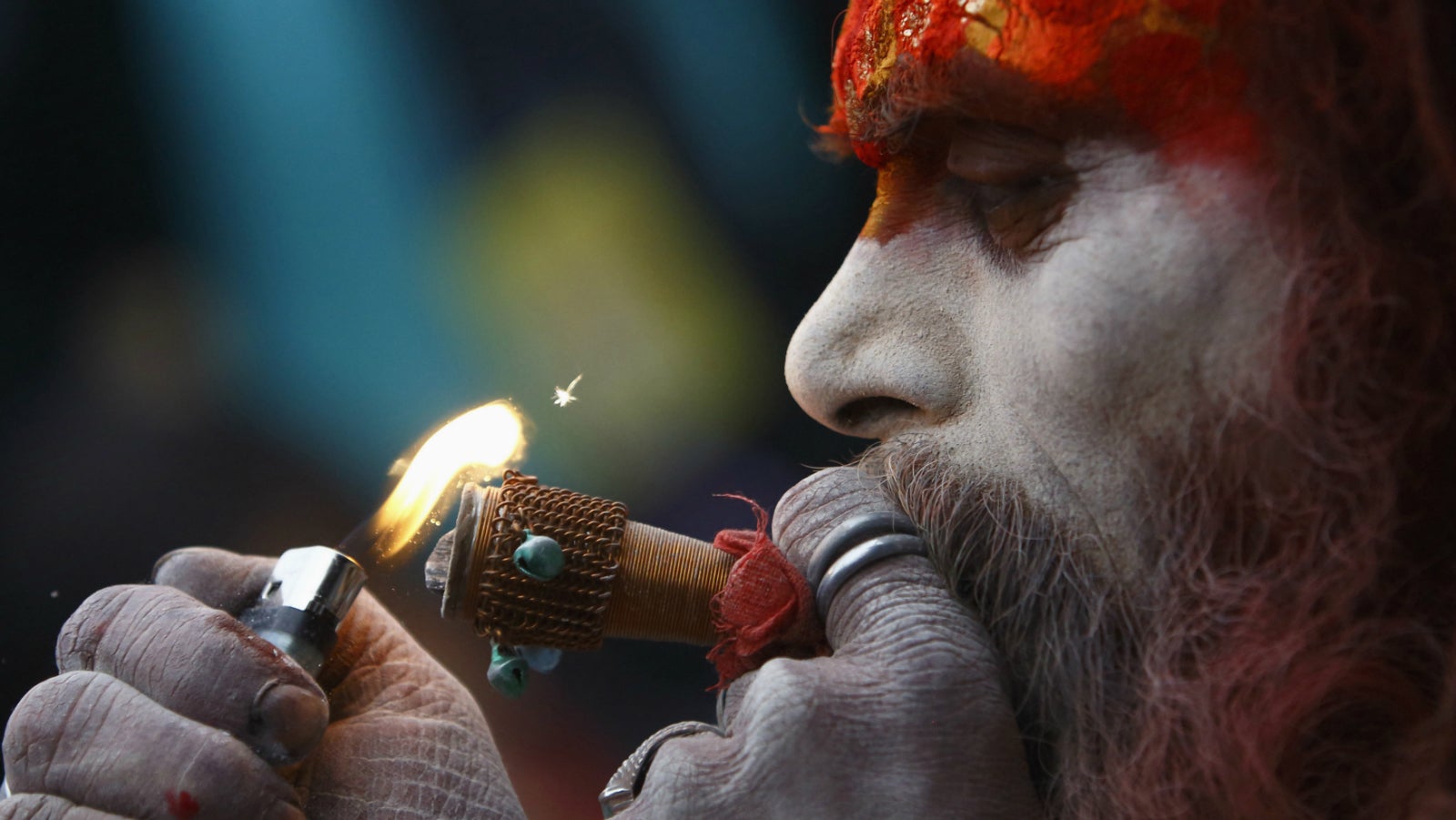An ancient Himalayan village known for India’s best hash is now off limits for tourists
A deity has just put an end to visitors thronging one of the world’s top stoner destinations.


A deity has just put an end to visitors thronging one of the world’s top stoner destinations.
An isolated village nestled in the Himalayas, Malana is popular for Malana Cream, a strain of cannabis with a high oil content and intense aroma. Over the decades, this village of over 4,700 residents had emerged as a much sought-after destination among tourists thanks to its premium quality hashish.
Malana Cream is among the most expensive hashish on the famed cannabis menus of Amsterdam. A tola, or 11.66 grams, sells for over $250 there and over Rs4,000 ($60) in India.
Now, however, an oracle chosen by the villagers to communicate with their god, Jamlu, has asked them to close down all guest houses and restaurants to protect local culture and traditions, the Hindustan Times newspaper reported on July 11. According to their beliefs, locals stay away from eating, staying, or marrying outside the community.
“The deity did not want any of the villagers to rent out their property for running guest houses and restaurants…those violating his orders will have to bear the brunt of his curse,” Malana panchayat head Bhagi Ram told the Hindustan Times newspaper.
The village parliament had earlier mulled over the threat to Malana’s culture, especially from the tourists. A few months ago, the village banned photography, believing that the pictures taken by the tourists were instrumental in portraying the village as a narco-tourism hub.
Located in the Parvati Valley, a favourite locality among young Israelis, nearly 240 hectares (593 acres) in Malana are under cannabis cultivation, producing over 12,000kg of hashish in 2016. Malana villagers consider themselves descendants of the soldiers of the Macedonian conqueror Alexander. They once specialised in baskets, ropes, and slippers made from hemp, and had turned to hashish after foreign tourists taught the villagers how to extract the resin from cannabis.
Cannabis is illegal in India, but it also dominates India’s illicit drug trade; no other narcotic comes close. Last year, the country seized over 182,622kg of ganja and 2,489kg of hashish.